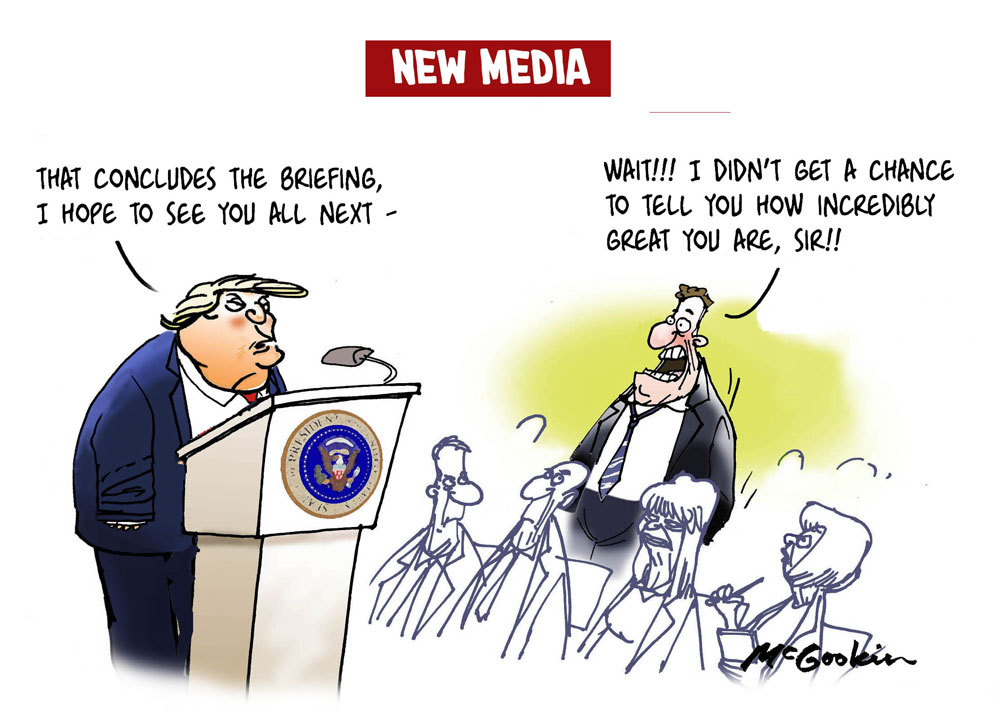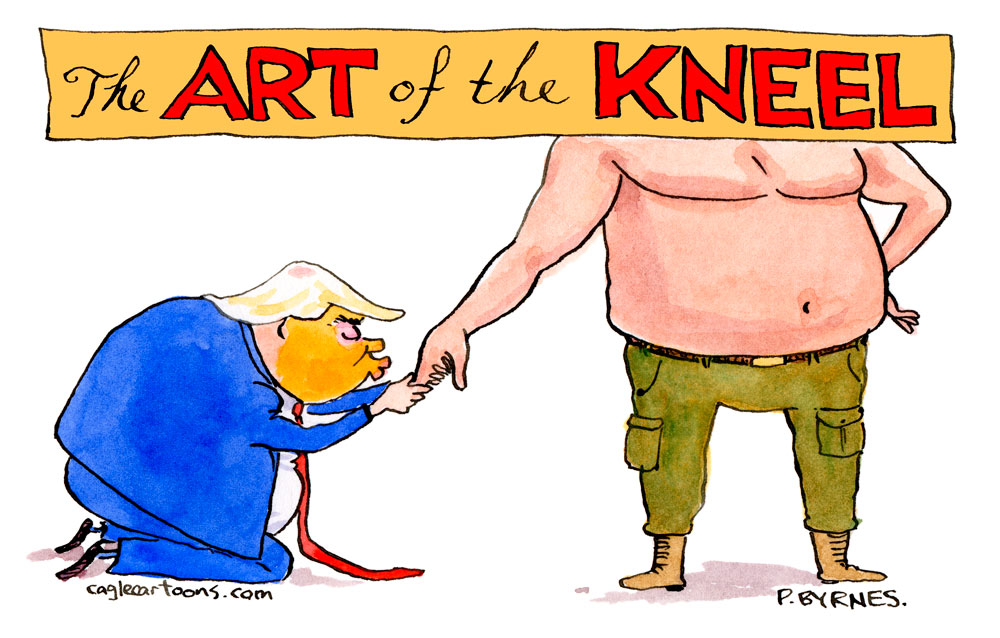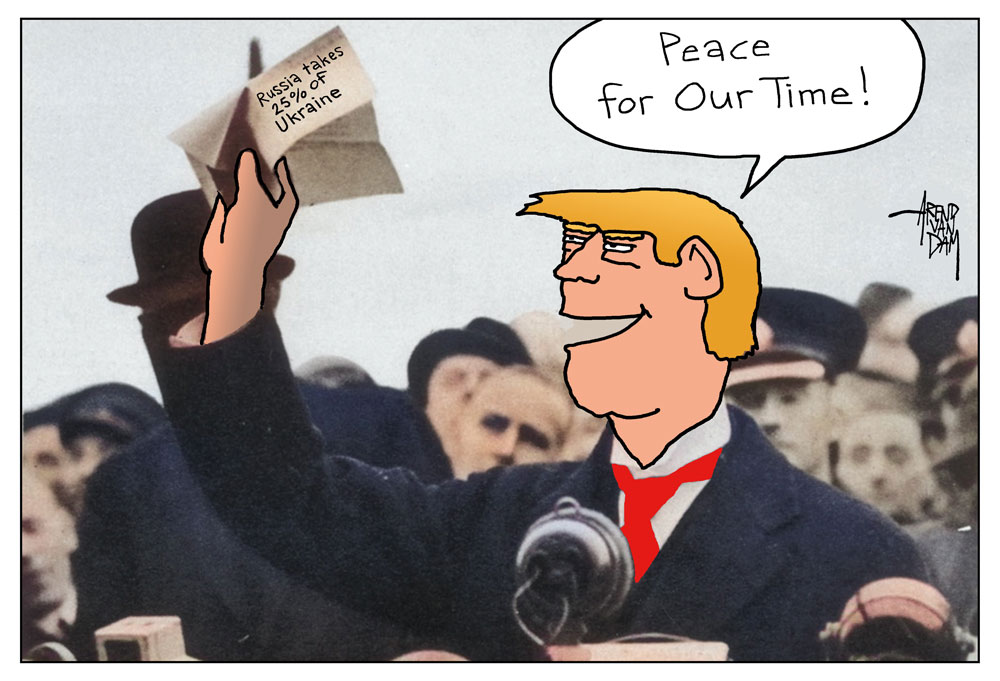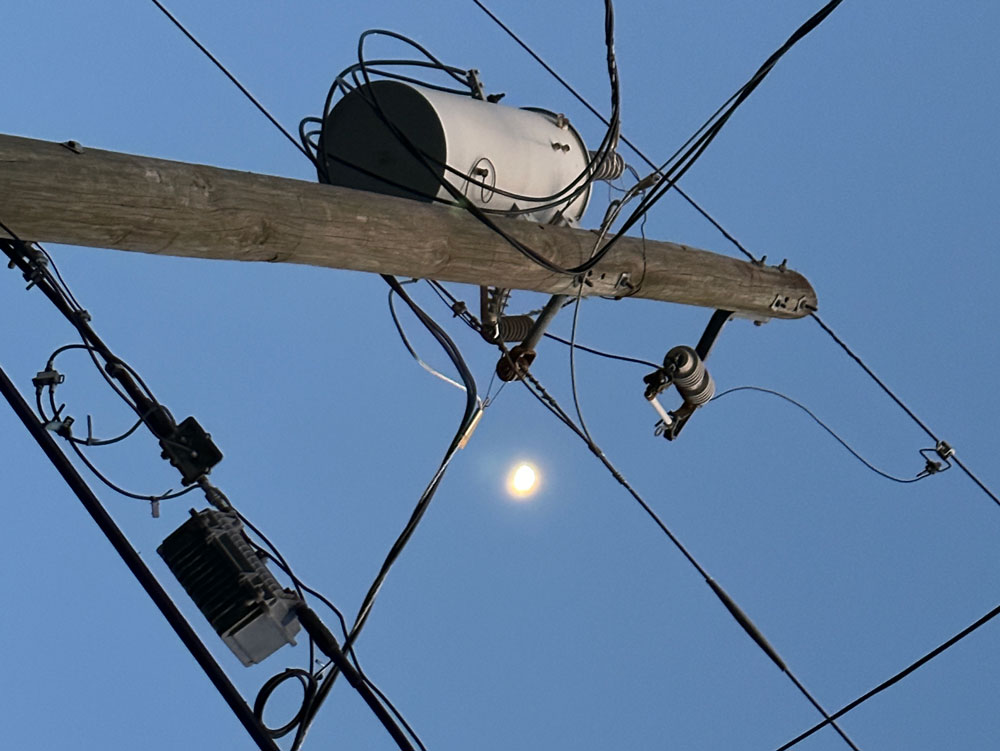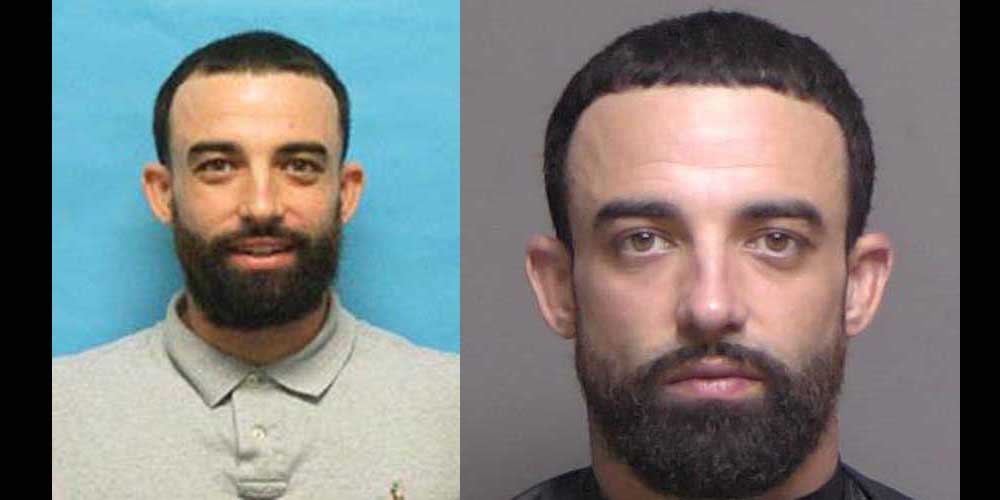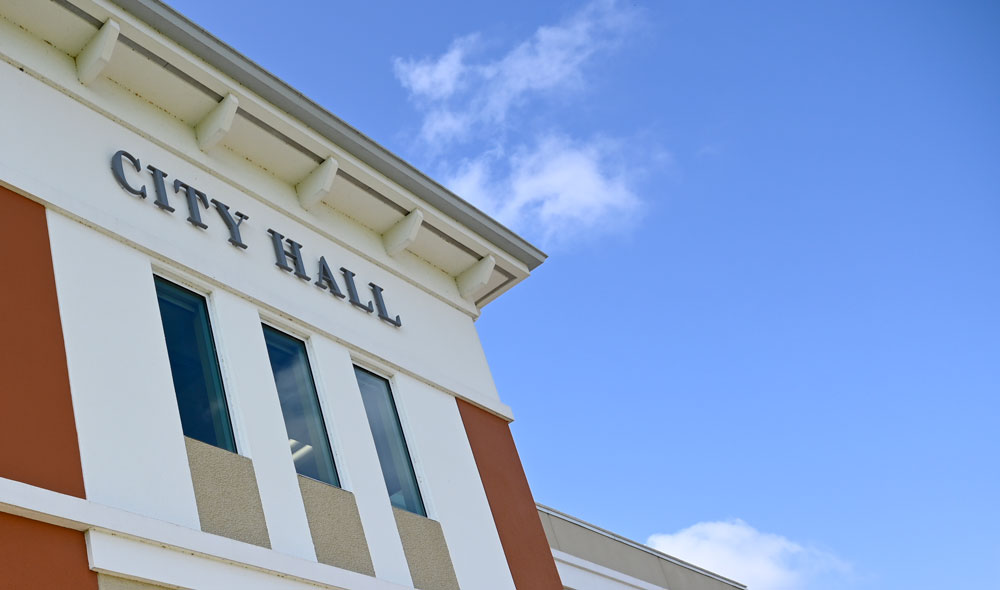Please complete this form to add your event to the Briefing and Live Calendar.
The weather is sunny. There is a remote possibility of showers and thunderstorms in the morning, followed by a high probability of showers and thunderstorms in the afternoon. peaks in the lower nineties. Rain is 60% likely.Thursday evening: partly overcast. Most likely to occur in the evening are showers and thunderstorms. 60s to 70s lows. Rain is 60% likely.
A Quick Look at Today:
In court: Flagler County v. Whitfield:Circuit Court Judge Dawn Nichols will hold a case management meeting in Courtroom 401 at 1:30 p.m. on Samantha Whitfield’s civil whistleblower case against her former employer, the Flagler County government. Whitfield alleges that she was fired in 2023 as payback for disclosing rule infractions and misconduct by a coworker. See: A former HR manager for Flagler Government files a lawsuit against the county, describing a hostile and uncaring environment.
The Drug Court convenes before Circuit Judge Dawn Nichols at 10 a.m. in Courtroom 401 of the Kim C. Hammond Justice Center, located at 1769 E Moody Blvd, Building 1, Bunnell, the Flagler County courthouse. Drug Court is accessible to everyone. View the participation agreement here and the Drug Court manual here.
The Tourism Development Conference Room, 120 Airport Road, Suite 3 (third floor), is the location of the Flagler County Industrial Development Authority meeting, which begins at 2:00 p.m.
Let’s Talk to Council Members at Palm Coast Town Halls:Charles Gambaro, a council member, at the Southern Recreation Center at 5:00 p.m. today. Residents have the opportunity to visit in person with their City Council Members, ask questions, and gain greater insight into the inner workings of their local government by attending a series of town halls being held by the City of Palm Coast. Through this new project, locals can freely express their opinions, pose inquiries, and have meaningful conversations regarding community development, city services, and Palm Coast’s future.
Town of Marineland Commission Meeting, GTMNERR Marineland, 9741 N Oceanshore Boulevard, St. Augustine, main conference room, 6 p.m. The town’s webpage can be found here.
Palm Coast’s Central Park, located at 975 Central Avenue, will host Model Yacht Club races at the Pond from noon to two o’clock. Participate in the races with your own model yacht or watch Bill Wells, Bob Rupp, and other Palm Coast Model Yacht Club members race. The club meets every Thursday at the pond in Central Park and there are no dues to join.
Preschool Story Time is held at the Flagler Beach Public Library, located at 315 South Seventh Street, Flagler Beach, from 11 to 11:30 a.m. Join Miss Doris for stories and songs—it’s where the wild animals are.
To accommodate working Democrats, the Palm Coast Democratic Club hosts an After Dark Recap Meeting (a previous daytime business meeting) on the third Thursday of the month at 6 p.m. Our meeting will take place in the Flagler Democratic Party Headquarters located at 160 Cypress Point Parkway, Suite C214, Palm Coast, in City Marketplace. I hope you’ll come. The public is welcome to attend this event at no cost. There is no need to make any reservations in advance. For the best directions, call (386) 283-4883; for additional information, call (561) 235-2065.
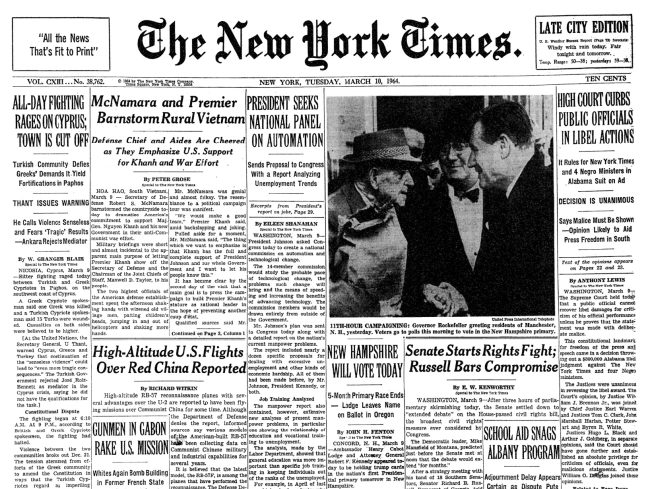
Notebook: Some of us were born during the Great Depression, others during World War II, and some were undoubtedly born on 9/11. I’m Sullivan v. New York Timesbaby, and when I pieced together 9 and 21, I learned (much like I learned what my DNA was comprised of a few years ago). Nov. 21 is my birthdate, and I never get tired of bragging about it because it’s all I have in common with Voltaire (down to our cabbalism: me 1964, him 1694). On March 9, 1964, the Supreme Court made the Sullivan ruling public. At Columbia, Herbert Wechler was instructing his constitutional law course. On January 6, he had made the argument for the New York Times. Rhoda Bauch, his secretary, came out of class to give him a message. He gave the class a reading of the note: The verdict was overturned. A unanimous decision was made. Huge cheers. The Beatles’ I Want to Hold Your Hand, She Loves You, and Please Please Me were ranked Number 1, 2, and 3 on the Billboard that week. My parents, who were six time zones away, continued to hold hands and miscalculate their love rhythms because I was unplanned and, for a while, the potential target of an abortion. They were so happy with each other that a parable of the seeds made my front page. I was here nine months later. My father was not yet a professional photographer, and my mother was not yet a journalist. Although the Sullivan decision undoubtedly made the front page of the two French dailies in Beirut at the time (L Orient was founded in 1924, Le Jour in 1934, and they would merge into L Orient-Le Jourin 1971, around the time my mother started writing columns there, but not yet of politics; the paper celebrated its 100th anniversary last March), I doubt that either of them was aware of the bigotry of Sullivan from Alabama. My parents, who liked to think of themselves as open-minded, might have mentioned it a little bit over those freshly baked breakfast baguettes downstairs, but they were unaware of the significance of the decision. Nobody knew it at the time, and according to Anthony Lewis’s amazing 1991 account of the case, “Ms. Bauch’s note could hardly suggest the scope of what the Supreme Court had done.” The Times didn’t either. Although it just had one column, it earned the top spot in the March 10 editions. At the time, Lewis served as the paper’s Supreme Court correspondent. A public person cannot be held accountable for damages for criticism of his official performance unless he can demonstrate that the statement was made with intentional malice, the Supreme Court ruled today, according to Lewis. A $500,000 Alabama court verdict against The New York Times and four Negro ministers was overturned in a decision that set a precedent for freedom of the press and speech under the constitution. Although Armstrong’s single was ranked 13th on that week’s chart, the Times did not reference my parents’ Hello Dolly! to my flawless conception, but serendipity’s knot would be knotted soon enough. In the seven years I commuted to the UN school and then to NYU on the 7 train through Queens and Manhattan, reading the Times every morning and always beginning by reading every word on the OpEd page, which at the time served as the paper’s columnists, Anthony Lewis became one of my seven principal journalism professors. Lewis with his Abroad At Home column; Tom Wicker, who I found to be less scholarly but more perceptive and often a better writer; James Reston, whose smugness and dullness I would (years later) discover was his Walter Lippman act (a writer I cannot stand much more); the consistently dull Flora Lewis writing the Foreign Affairs column; the unbearably sharp but fact-challenged William Safire, who liked to scoop the news pages but with such zeal that his scandal-mongering often backfired, ruining lives along the way (Bert Lance comes to mind); Sydney Schanberg, who won the Pulitzer Prize for his coverage of the fall of Phnom Penh and the killing fields; and was fired by the vile Abe Rosenthal when Schanberg dared to question the sleazy deals of Rosenthal’s real estate buddies surrounding the doomed West Side Highway. Together with the Times’ correspondent stable, those seven taught me the fundamentals of journalism. Even though I occasionally picked up the Wall Street Journal for show, my schooling was too biased in those days. I was unaware that I was a Sullivan baby until I read about it in Lewis’ book just last week. Everything comes together just in time for Sullivan to be torn to pieces by the current White House tycoon and his six Supreme Court mullahs. The time will come.
P.T.
Now, this:
![]()
Local and regional political, civic, and cultural events are compiled in the Live Calendar. If approved, of course, you can enter your own calendar events exactly how you want them to appear on the website. Please complete this form in order to have your event listed in the Live Calendar.
Click here to view the entire calendar.
![]()
First, any opinion that is silenced may be true because of what we can be confident of. We would be assuming our own infallibility if we denied this. Second, even if the silenced opinion is incorrect, it may—and frequently does—contain some truth. Furthermore, since the general or dominant opinion on any given topic is rarely or never the whole truth, the only way the remaining truth can be provided is through the collision of opposing viewpoints. Thirdly, even if the received opinion be not only true, but the whole truth; unless it is suffered to be, and actually is, vigorously and earnestly contested, it will, by most of those who receive it, be held in the manner of a prejudice, with little comprehension or feeling of its rational grounds.
From John Stuart Mill sOn Liberty(1859).
The Cartoon and Live Briefing Archive.
